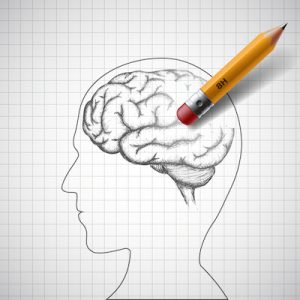Although it can mimic other cognitive disorders, memory loss in multiple sclerosis has its own causes.
Multiple Sclerosis and Memory
Multiple sclerosis patients face many challenging symptoms, one of which may be memory loss. Early accounts of cognitive impairment in MS patients have been mixed over the years. This discrepancy probably occurred because most neurologists didn’t ask their MS patients about their mental decline, and those who did used inconsistent ways to measure cognitive function.
Today, we know that MS lesions on the brain can interrupt neural pathways involved in the memory process. However, forgetfulness can be caused by several other factors, including aging, certain medications, dementia, anxiety, depression, or even sleep problems. Knowing this can lead the way to other treatment options, so if you are a MS patient, discuss your symptoms freely with your doctor.
Memory Loss and Aging
Forgetfulness becomes a common complaint as we age. Some information that should be stored in your short-term memory doesn’t come to mind, such as the correct name for everyday objects, where you put your car keys, or remembering to pick up something on the way home. This happens because the physiological changes brought on by age can cause malfunctions in the brain’s memory processing. It might take you longer to learn and recall new information.
Simply put, you just aren’t as quick as you used to be. The slowing of mental processing associated with getting older is sometimes mistaken for true memory loss. Although these memory lapses are frustrating, they’re not really a cause for concern. Memory changes caused by aging aren’t the same thing as dementia or Alzheimer’s, and with time, information in the short-term memory returns with age-related forgetfulness.
Multiple Sclerosis and Memory Loss

After you realize there’s a problem, you may wonder what to do about it. Rest assured that you aren’t likely to suffer complete memory loss. The problem will stay the same for years and worsen over a long period. However, you and your doctor should rule out other factors related to memory loss such as loss of sleep, anxiety and depression. Now you can make a plan to combat your forgetfulness.
Strategies to Help Deal with Memory Loss
Memory loss can affect your confidence, making you more reluctant to start a conversation. Repeating actions or forgetting to do something can cause embarrassment.
It’s a good idea to alert friends, family and co-workers of your problem so that you can gain their support. You can also borrow some tips and tricks that well-organized people use. Their organizational skills aren’t necessarily due to excellent memory. They’ve simply developed a system, and so can you.
Let the following tips help:
- Keep your keys and other everyday items in the same place.
- Keep a pen and pad handy to write yourself notes.
- Repeat information someone gives you. This helps it stick in your memory.
- Ask others to email or text information to you.
- Have a routine so you know what task comes next.
- Complete one task at a time.
- Concentrate better by removing distractions like the TV or background noise.
- Visualize the way to get somewhere rather than just using directions.
- Use word associations as a memory aide by associating names with objects.
- Avoid doing physical and mental tasks at the same time, such as walking and conversing with someone.
Although you can do a lot to help your MS-related memory loss, it can also help to discuss the problem with an MS nurse or a neurologist. They can refer you to other healthcare professionals for help such as a psychologist, occupational therapist or speech-language pathologist.





